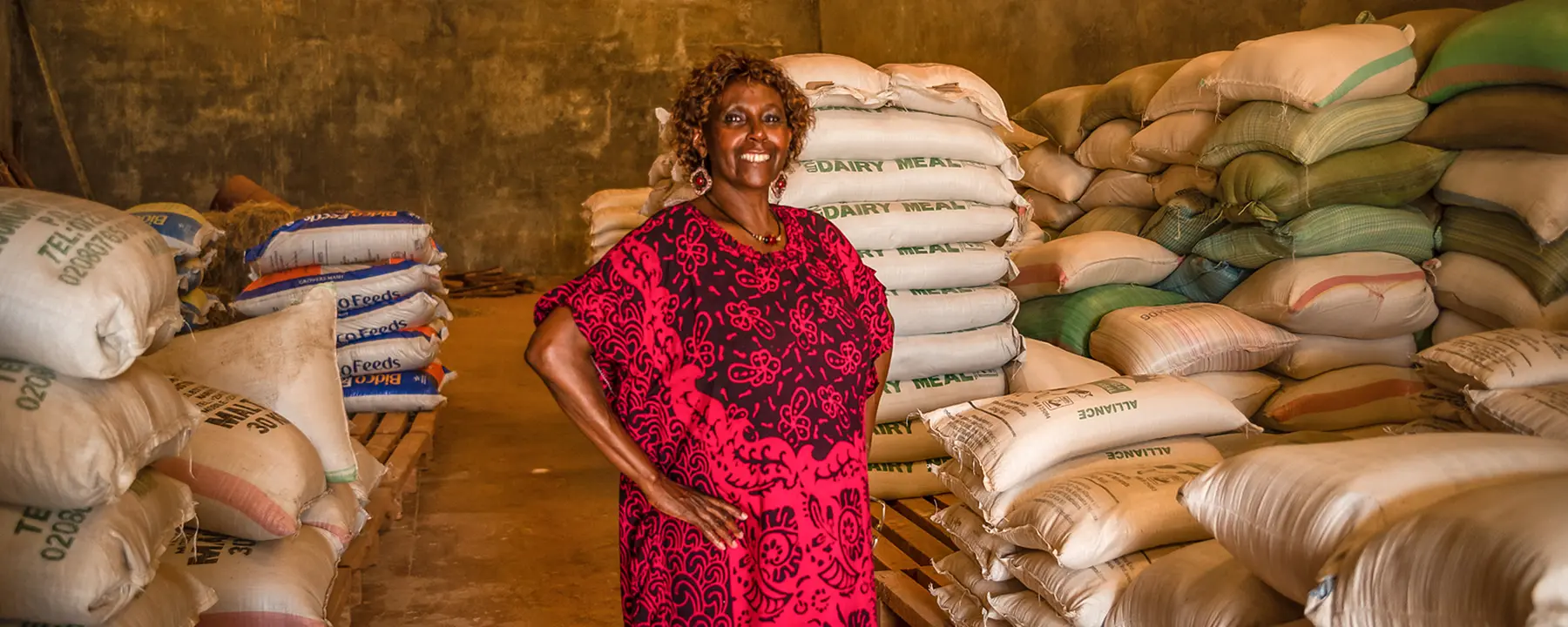Feed the Future Innovation Labs
Photo Credit: Katie G. Nelson for RTI International.
RTI uses cookies to offer you the best experience online. By clicking “accept” on this website, you opt in and you agree to the use of cookies. If you would like to know more about how RTI uses cookies and how to manage them please view our Privacy Policy here. You can “opt out” or change your mind by visiting: http://optout.aboutads.info/. Click “accept” to agree.

Photo Credit: Katie G. Nelson for RTI International.
As we face a changing climate, the ways we feed and nourish growing populations will have to change too. Through three of the USAID-funded Feed the Future Innovation Labs, RTI is part of a visionary coalition of partners who are working to alleviate hunger and malnutrition and build resilience through agriculture and food security research.
This research is tackling some of the world’s most pressing challenges: ending chronic hunger and poverty sustainably. At RTI, we are playing a key role through our unique capability in monitoring, evaluation, and research to inform continuous learning and adaptation for improved program effectiveness, impact, and evidence-based policy decisions. Read more about each lab below.
Smallholder fish farmers and fishers play a critical function in the food security of many countries—especially in the Global South. Fisheries and aquaculture also provide employment for nearly 60 million people worldwide. However, coastal ecosystems are coming under pressure from climate change and population growth. Increases in water temperatures alter the ecosystem fishers rely on for their catch, while economic growth and human activity alter fish habitats.
Under the leadership of Mississippi State University and funded by USAID, the Feed the Future Fish Innovation Lab is identifying ways to boost ecological resilience and create more sustainable fishing practices.
Understanding how climate and habitat change are affecting fisheries is a critical part of building more sustainable practices. RTI is leading the monitoring and evaluation of the Lab’s work with fisheries and aquaculture systems in Nigeria, Kenya, Zambia, Bangladesh, Cambodia, and Ghana. This work is helping the Lab measure and understand how shocks and stressors affect those industries, generating urgently needed insights for development practitioners, researchers, and governments.
With our results-focused approach to research, RTI can fill gaps in evidence, incorporate best practices into monitoring, evaluation, and research, and ensure that the Fish Innovation Lab’s progress toward Feed the Future’s goals is guided by continuous learning and iterative adaptation.
As climate change causes changes in weather patterns, precipitation, and pests, increasing the resilience of crops and production chains has become an urgent task. Led by Cornell University, the Innovation Lab for Crop Improvement, is a global research program that works on developing agriculture to reduce poverty and malnutrition in lower-income countries.
ILCI is advancing plant breeding tools, technologies, and methods to increase yields of staple crops, enhance nutrition, and increase resistance to pests and diseases. As an interdisciplinary, integrated research program, ILCI supports national programs to accelerate the breeding of locally adapted legumes, roots, sorghum, and millet varieties targeted to smallholder farmers in East and West Africa, and Latin America.
RTI is working with Centers of Innovation in Costa Rica, Haiti, Malawi, Senegal, and Uganda to improve value chains for crops such as sorghum, pearl millet, sweet potato, beans, and lentils. Our monitoring, evaluation, research, learning and adapting activities enable the Lab to confidently quantify the progress and impact of its work.
Most people in low- and middle-income countries rely heavily on cereal crops—such as sorghum, millet, wheat, and rice—as a staple of their diet. Climate change and extreme weather have significantly decreased crop yields, especially in areas reliant on rain for irrigation.
Led by Kansas State University, CRCIL is dedicated to collaborative, interdisciplinary research and other activities to develop new climate-resilient varieties of cereal crops. The Lab will focus on improving the breeding of climate-resilient sorghum, millet, wheat, and rice with improved nutrition, safety, and greater yields.
RTI’s dynamic MERLA (Monitoring, Evaluation, Research, Learning, and Adapting) approach will guide and improve performance management through collaborative engagement with program staff members, donors, government personnel, and other stakeholders. Ongoing and results-focused monitoring processes will allow CRCIL to determine the extent to which an intervention is affecting the intended target population, whether it is occurring according to plan, what activities are working, and what new opportunities or limitations are emerging within the operating environment.
By raising cattle, goats, sheep, pigs, and poultry, smallholder farmers in low-income countries can provide their families with nutrient-rich food while generating additional income. The Feed the Future Innovation Lab for Livestock Systems—implemented by the University of Florida and the International Livestock Research Institute (ILRI) with funding by USAID and the Bill & Melinda Gates Foundation—is conducting research to increase food security and nutrition through livestock farming in Burkina Faso, Niger, Ethiopia, Rwanda, and Nepal. This innovation lab is taking a systems approach to explore climate-smart research strategies to increase animal-source food consumption, strengthen markets, foster an enabling environment for livestock policy, enhance food safety, and improve livestock feeds and feeding and disease surveillance and mitigation.
As part of that effort, RTI collaborated with ILRI on a study to assess how adding social and behavior change communication to the Government of Rwanda’s livestock asset transfer program impacted child nutrition. The study was a three-arm, cluster-randomized evaluation that included surveys with a cohort of mothers and children and endline qualitative data collection. The research team also conducted a follow-on study to test an intervention to engage fathers in supporting child nutrition, which successfully increased the children’s frequency of milk, egg, and beef consumption.
Learn more about RTI’s global food security, agriculture, and nutrition and MERLA work.